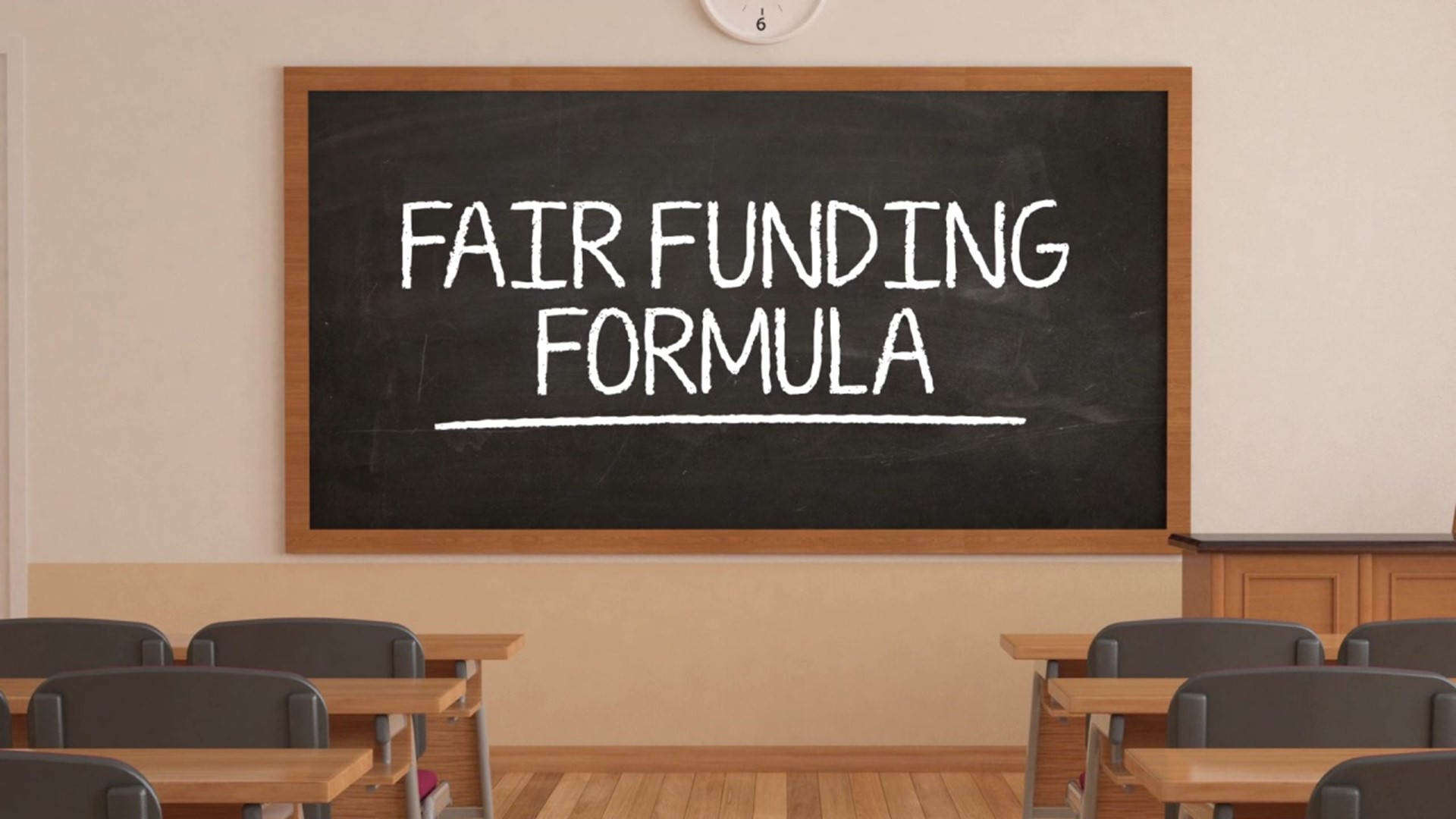Action 16 Investigates: The fight over fair funding
A lawsuit in Harrisburg could affect how your school district is funded by the state.

Educators in northeastern and central Pennsylvania are waiting on the results of a major test that took place over the summer.
A handful of poorer school districts faced off against state lawmakers in court, arguing that the state's system for funding public education is unfair.
According to the organization Pennsylvanians for Fair Funding, many districts in our area would be receiving millions more in state taxpayer money if the state used its own formula to divide the money.
The organization's analysis from 2020 shows these districts as the most underfunded in northeastern and central Pennsylvania:
- Wilkes-Barre Area
- Scranton
- East Stroudsburg Area
- Riverside
- Jim Thorpe Area
- Wallenpaupack
- Panther Valley
- Hanover Area
- Shenandoah Valley
- Mid Valley
Action 16 Investigates Fair Funding What is Fair Funding?
If you think of the state's share of money for public education as a pizza, the fair funding formula is a way to cut it up. It was enacted in 2015 as a way to divide up funding among the state's 500 districts.
Fair funding doesn't mean equal, because some school districts need a bigger slice to satisfy their needs.
Karen Beck Pooley is a member of Pennsylvanians for Fair Funding.
"If everyone around the table already has a slice of pizza, that's not the district that the state needs to contribute to because the state's obligated to support public education, but that's not where extra dollars need to go," Beck Pooley said.
Beck Pooley told Action 16 Investigates the formula takes into account the needs of a district's students, including the number of children who live below the poverty line or who are not native English speakers. It also takes into account a district's local resources and how much it is already taxing those resources.
Most of the state's education funding is cut up the traditional way. Only money added since the Fair Funding Act was passed — only 20% of total education funding — is divided using the formula.
"The funding formula is a great funding formula, but it doesn't have enough money going through it to be able to actually remedy the decades of under-investment that Harrisburg has chosen to make," said Susan Spicka, the executive director of Education Voters of PA.
Action 16 Investigates Fair Funding A legislator's perspective
Parents and educators, including some here in our area, are suing lawmakers, arguing the current system for funding education is unconstitutional.
State Representative Mike Carroll from the Pittston area of Luzerne County was called to testify.
"Even though I'm a defendant, I was a witness for the plaintiff because I believe the plaintiffs were right. The way we fund schools, specifically the 500 school districts, is broken. And the lawsuit is the best avenue to repair it," Rep. Carroll said.
Carroll is retiring from office at the end of this year, so the outcome of the lawsuit won't affect him, but it will affect schools in his district both positively and negatively.
Carroll said the state should increase the total amount of education funding so that no districts lose out. Analysts say that may mean the state will have to put close to $5 billion more into education each year.
It's unclear what increasing state education funding might mean for your state tax bill, but Carroll believes school districts are too reliant on local property taxes.
According to data from the state department of education, more than half of the state's school districts increased property taxes this past school year.
"Hopefully, if the state puts more money on the table, we'd have less reliance on school property taxes, and we could actually take a run at reducing some of the school property taxes," Carroll added.
Action 16 Investigates Fair Funding A teacher's perspective
The Riverside School District in Lackawanna County is among the most underfunded districts in our area, according to Pennsylvanians for Fair Funding's analysis.
Superintendent Paul Brennan told Action 16 Investigates the district was able to stave off raising property taxes this year.
But teachers can see that the budget is strained. Class sizes are their biggest concern.
"It makes it so much harder to do our jobs and do it well with so many students in the class," said Riverside kindergarten teacher Kelly Davis.
They said it's those students who have been shortchanged the most.
"There's a turning point right now in education where people need to step up, from up above us, ourselves included, to make things right in terms of funding," Brennan said.
Those involved in the lawsuit expect a decision from the judge by the end of the year. Whatever the decision, appeals are expected.
Action 16 Investigates Fair Funding See how your school is affected
Use this graph to see how your school district is affected by the state's current funding system:

